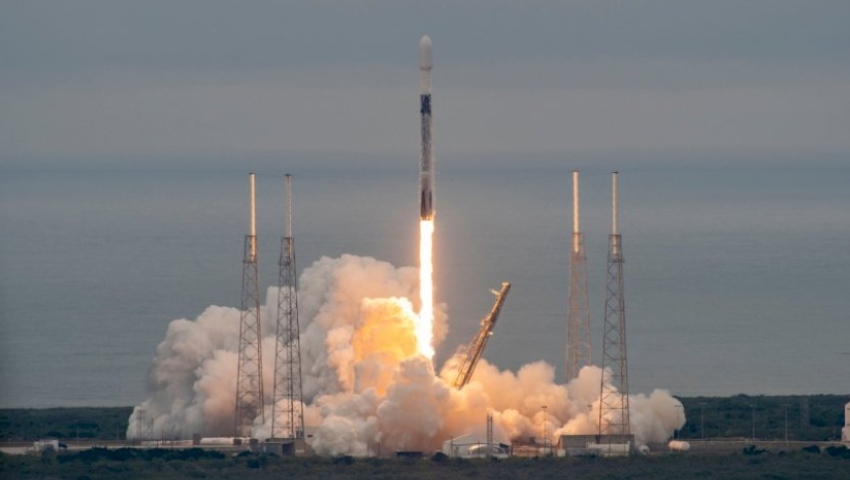“Spy satellite” firm Kleos Space has announced its next satellite launch will be delayed until October after a “vibration issue” was detected with its original deployment method.
The launch will now take place on SpaceX’s Transporter-6 mission and expand its offering from 12 to 16 satellites.
The Luxembourg-based company is best known for using its clusters in low-Earth orbit to geolocate RF emissions from passing ships that may be trying to hide their positions from tracking services. It’s eventually targeting a constellation of 20 satellites, with current clients including the US Navy.
The four new satellites will launch as part of its “Observer Mission” and expand Kleos’ data collection capability by up to an additional 119 million square kilometres per day.
It will also increase its average daily revisit rate – or the time elapsed between observations of the same point on Earth – to around five times a day over the 15-degree latitude area of interest.
Kleos Space CEO Andy Bowyer said, “The upcoming launch brings our low-Earth orbit constellation to 16 satellites, further increasing our data collection, intelligence, and reconnaissance capabilities.
“The Observer Mission features VHF and X-Band collection payloads, providing additional value and capabilities to our government and commercial data customers.”
The satellites will be deployed into a sun-synchronous orbit from Cape Canaveral in Florida.
Kleos said it worked with Spaceflight Inc on the launch, which subsequently contracted the services of ISILAUNCH.
The blast-off was due to take place in mid-2022 but was switched to an ISILAUNCH integrated port after Spaceflight encountered what it described as a vibration issue with their original deployment method.
Kleos uses four satellites per cluster, flying in formation, which targets accurate RF geolocation data.
The news of the forthcoming launch caps a busy period of the rapidly expanding business.
Kleos’ US subsidiary recently signed a deal to share its geolocation data with the US Navy to find innovative new ways to stop smuggling, control fishing and conduct search and rescue operations.
The agreement is part of a wider collaboration initiative the US Navy is conducting with businesses, academia and technology partners to find innovative solutions for military challenges, known as the SCOUT Experimentation Campaign.
Kleos’ chief revenue officer, Eric von Eckartsberg, said, “This is a great opportunity for Kleos to support the US Navy in their efforts to innovate, learn, and find solutions that assist warfighters in quickly making the right decisions in the field.
“Kleos’ data improves the ability to detect and monitor suspect vessels across wider areas and over longer detection intervals.
“Our RF data greatly expands the search range, access, and volume to reach the vast maritime domain for tipping and queuing of assets.
“Our clusters of four satellites can collect millions of square miles several times per day, far more efficiently than any aircraft.”
Kleos also recently launched a new product to exclusively tailor its satellite data to individual customers seeking to monitor potential defence threats.
Unlike its older business model that gives multiple customers access to the same dataset, the new service will be tailored to “meet the need of specific ISR [intelligence, surveillance, reconnaissance] requirements of an individual customer mission”, according to Bowyer.
The new product, dubbed Mission-as-a-Service (MaaS), is set to complement its other services, the company said.
[Related: Kleos selected to support US Navy project]









